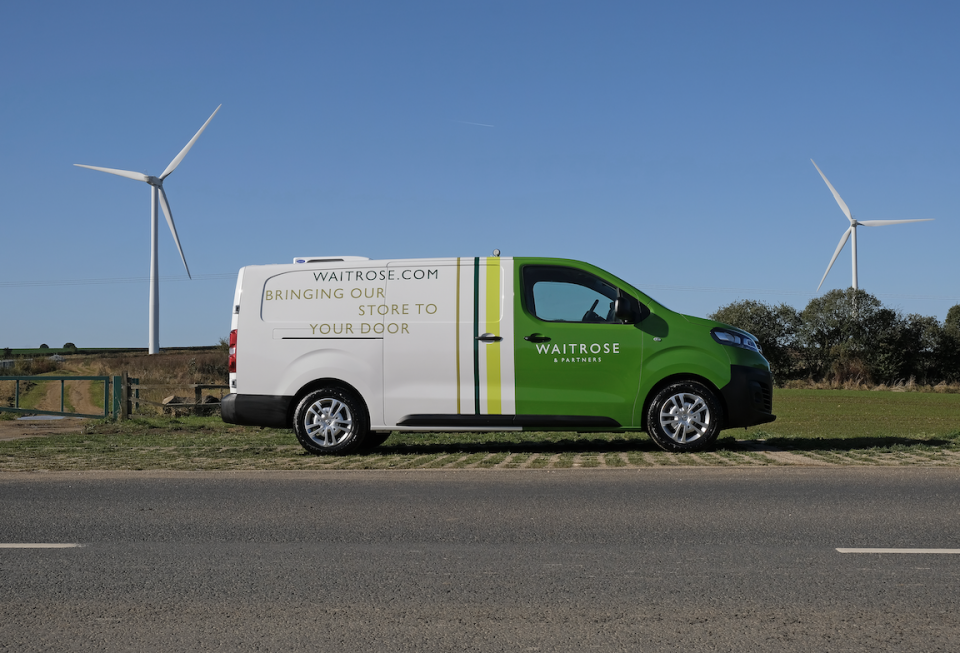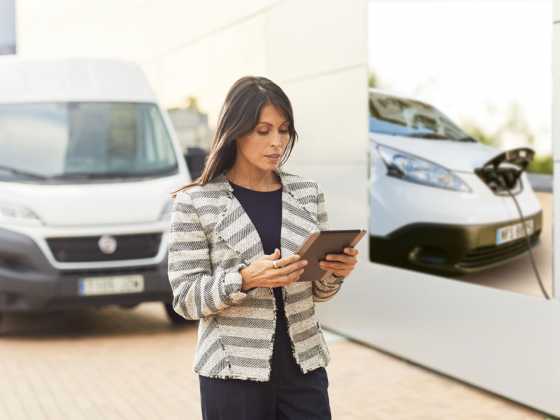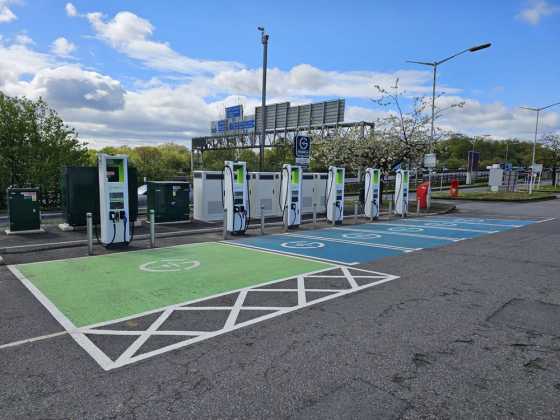Waitrose to trial wireless charged e-Vans in London

Waitrose is to trial a new generation of electric vehicles equipped with wireless charging technology
Groceries from Waitrose’s St Katherine’s Dock store will be delivered to customers entirely by electric vans when the trial commences in the New Year.
The move follows an ambition to end the use of fossil fuels across Waitrose’s entire transport fleet by 2030 - estimated to save 70,000 tonnes of CO2 every year, and comes as world leaders gather in Glasgow for the COP26 Climate Conference.
By 2030, Waitrose will have electrified all cars, vans and light trucks, and for sectors where that is not currently possible, such as long distance heavy trucks, biomethane will be used. The supermarket will reach 340 biomethane trucks in the next few months, and by 2028 all 600 heavy trucks will be running on biomethane.
Wireless vans are fitted with a slim charging pad on the underside and simply top up by parking above an electric plate, exactly like flat charging plates for mobile phones. They can also be plugged in to charge overnight.
The technology is installed by EV technology specialists Flexible Power Systems, which also equips the store with a cloud based smart charging system designed for home delivery.
The vehicles will be delivering groceries over the coming months from the St Katherine’s Dock Waitrose store in London and are expected to be expanded in the near future.
The trial builds on a deployment with City of Edinburgh Council and Heriot-Watt University in Edinburgh, funded by the UK Government’s Office for Low-Emission Vehicles through its innovation agency Innovate UK.
Marija Rompani, Director of Ethics & Sustainability at the John Lewis Partnership, comments: “Before the pandemic, we were taking 60,000 orders a week - we’re now doing well over 200,000 orders. That uplift in demand for grocery deliveries means that prioritising an electric fleet is more important than ever, particularly as world leaders meet at COP26 to discuss how we lower global emissions.”
“We’ve already committed to electric vans and have created a new biomethane gas filling station too, which is helping to reduce CO2 emissions by 80%. We continue to look for new innovative ways to cut our emissions even further, as well as bring in the latest technology. Being the first to trial this new wireless charging technology is both exciting and another example of our ambition to show leadership in this space.”



